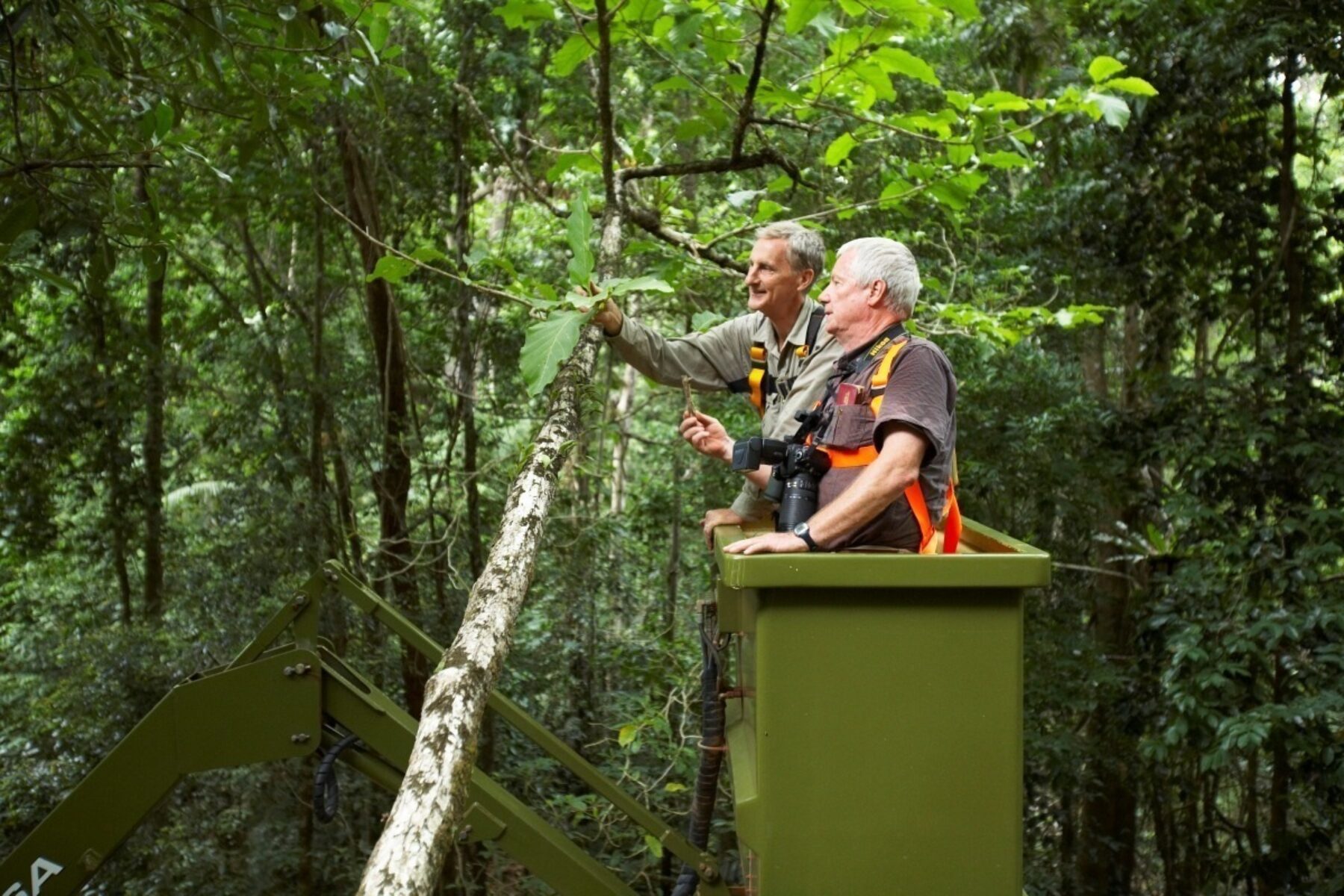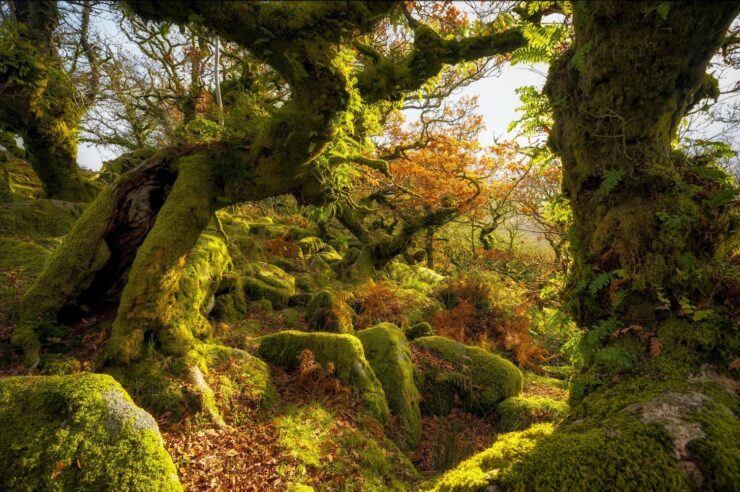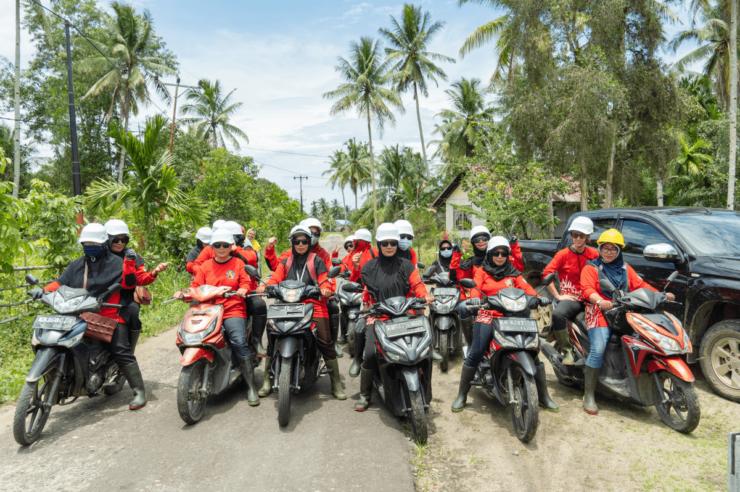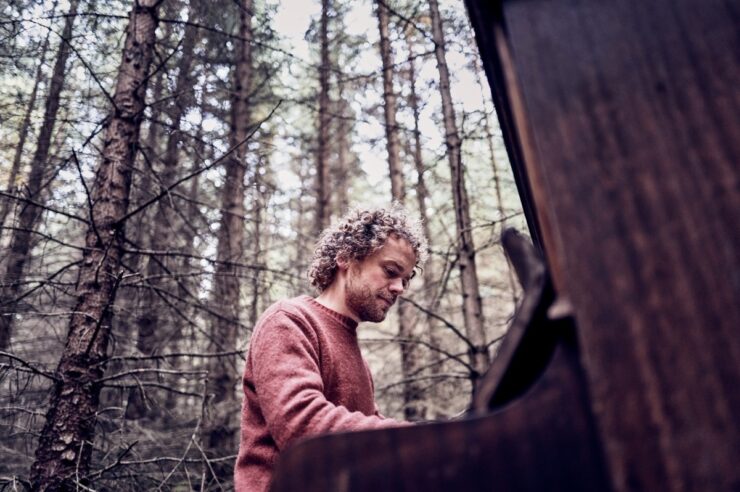In the Australian Wet Tropics region, restoration work is under way to protect the world’s oldest continuously surviving tropical rainforest. As the land’s First Nation traditional custodians know so well, forests have intrinsic physical, mental and spiritual health benefits
“I was out hunting and I felt energy come up through the ground, the river. The energy of love, that’s what hit me: full love. Mother Nature showed me she loved me too. I dropped to my knees and bawled my eyes out.”
Andrew Solomon is an Eastern Kuku Yalanji man from Mossman in north Queensland, and he has no doubt that we humans are one with the planet. His people call themselves the ‘sunrise mob’ because they are east of the ridge [the Great Dividing Range, the spine of mountains and hills that runs along virtually the whole east coast of Australia], and those on the west are the ‘sunset mob’.
“Country defines us,” he says. “It gives us our lore and defines who we are as tribal people. After so many thousands of years of eating and drinking from our land, all the minerals are in us and we have become genetically connected to our country.
“I thought only us blackfellas pick up on it but if we allow ourselves to see the beauty of nature, she will show us she loves us.”
In case you don’t know what the Eastern Kuku Yalanji know, the scientific jury is in. Forests are good for us. From camping and Shinrin-yoku – or forest bathing – as it is called in Japan to birdwatching and hiking, getting outdoors and into trees and green spaces has massive benefits for our physical, mental and spiritual health. Some prisons in the US have even set up ‘blue rooms’, where inmates take time out to calm down and watch nature videos.
But in the midst of nature around us, the world is in the grip of a mental health crisis. The World Health Organization estimates that one in four people globally will be affected by mental illness at some point in their lives. Suicide accounts for 700,000 deaths annually, compared to 608,000 from malaria.
After so many thousands of years of eating and drinking from our land, all the minerals are in us and we have become genetically connected to our country
For millennia, humans have intrinsically understood the benefits of green spaces. In the west public green spaces were officially designated in the 19th century, informed by a belief that they might provide health benefits. But it took a groundbreaking 1939 Chicago study to finally record for science a distinct relationship between mental health disorders – including schizophrenia and depression – and urbanisation, which exposes us to environments that exacerbate stress. Evidence suggests being in green space can decrease depression, anxiety and other mental health problems.
Prof. Peter Valentine, who works at James Cook University, came to Queensland 50 years ago to study tropical rainforests, and has stayed ever since. He now lives in the World Heritage Wet Tropics on the Atherton Tablelands of Queensland. The author of World Heritage Sites of Australia, a new book on some of Australia’s special places, he had read extensively about rainforests before setting foot in one.
“I knew about them in an intellectual sense but I’d never been inside a tropical rainforest until I came here,” he says. “From a human perspective there’s a range of different experiences. Some people experience it in a fearful way, they see it as a green barrier or wall. I’ve had filmmakers and the like complain about the lack of colour, and there are people whose eyes have not been opened.
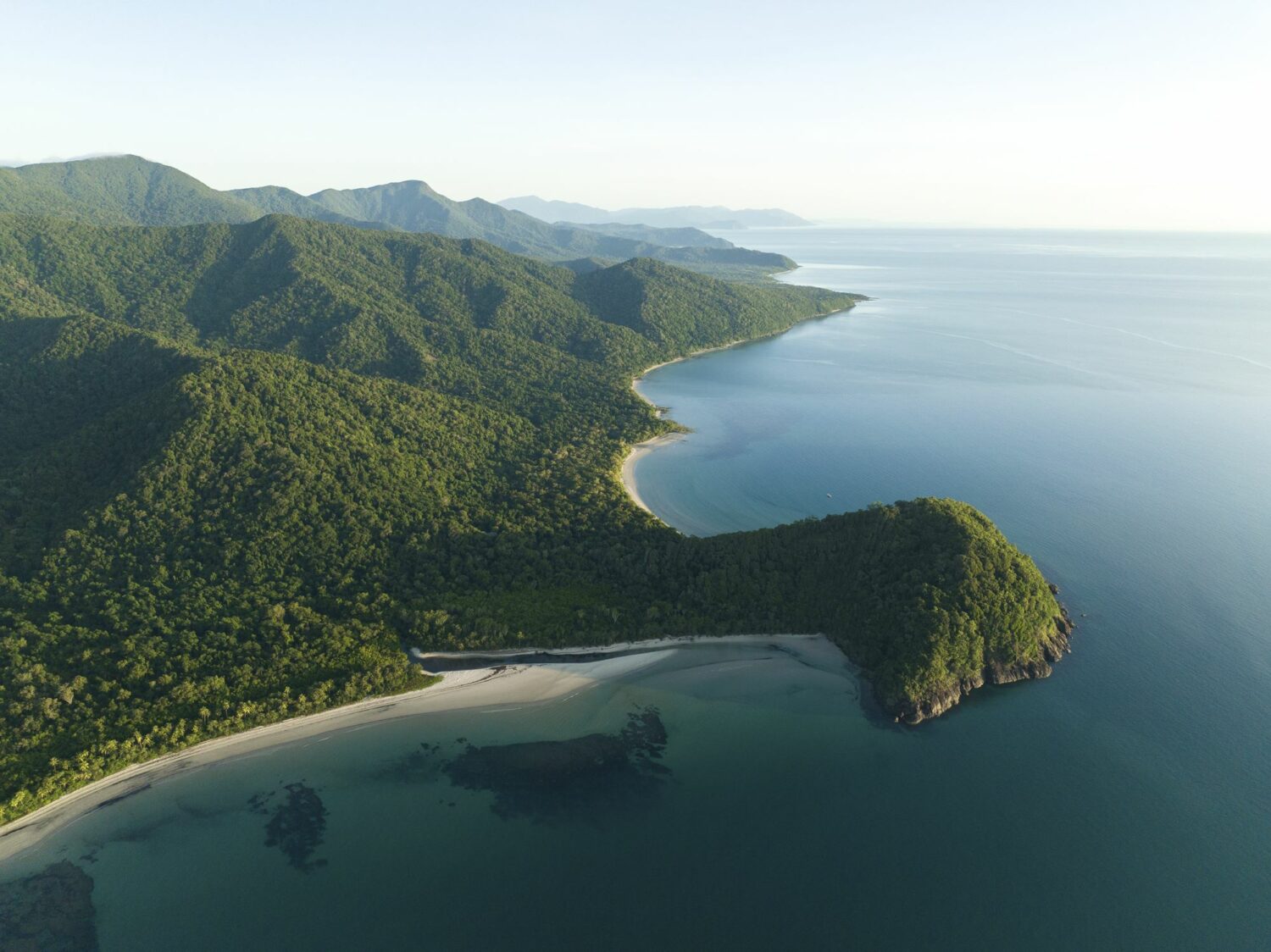
The Daintree Rainforest is part of the northern Wet Tropics, which play an integral role in the life of the Great Barrier Reef, filtering run-off from streams and rivers. Image: Tourism & Events Queensland
“Others embrace so much diversity of life. You can contrast the attitudes towards rainforests between early European settlers and Indigenous peoples, who embraced the forests as home. We still have elements of both in our society. There are those who do embrace the forests as an experience, and others who are a little fearful of the forest.”
He says part of the fear stems from a disengagement with nature that’s widespread in our culture, that we are dominated by the urban experience, and that lot of our real experiences have been displaced by virtual ones.
“There are utilitarian benefits to engaging with forests,” Valentine notes. “The first is physical health. In order to engage you have to get out of your comfort zone, you go walking, exercise, and you add clean air. You can’t get better oxygen-saturated air than in a tropical rainforest.
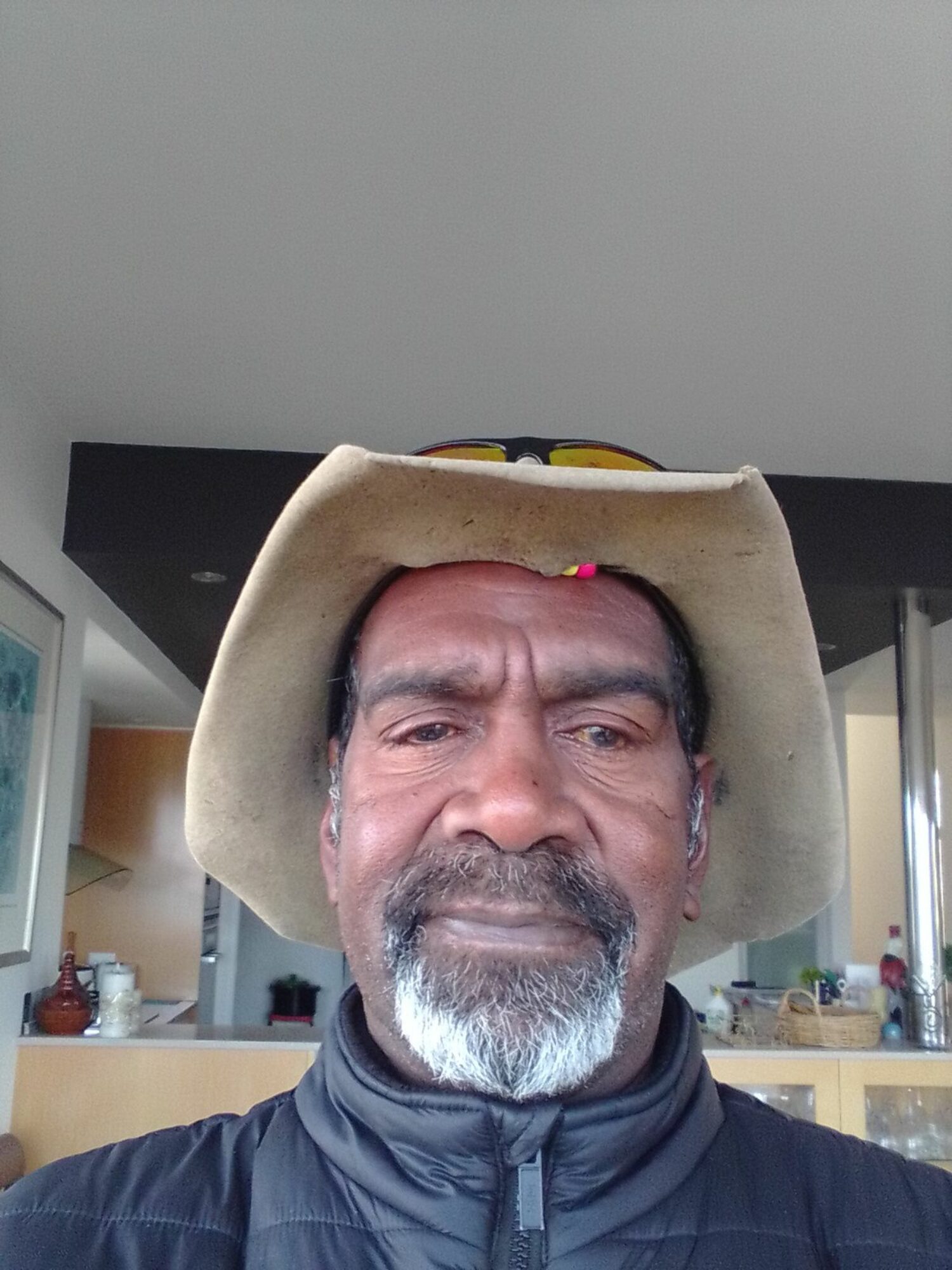
At one with the planet: Andrew Solomon is an Eastern Kuku Yalanji man from Mossman in north Queensland
“It’s very healthy, you’re stimulating your muscles and your brain. These are things the medicos tell us are good for us, and we feel better for that. They’re uplifting. Some things might be translated at a spiritual level, and how we feel about life. That can lift people out of depression and bring us into a more vibrant experience of life. It’s something we don’t get nearly enough of. It’s music for the soul.”
Scott Buchanan is the executive director of the Wet Tropics Management Authority, tasked with managing and caring for the Wet Tropics World Heritage Area of Queensland, which lie beside the Great Barrier Reef World Heritage Area.
“We’re the only place in the world where two World Heritage areas – the Great Barrier Reef and the Wet Tropics – sit side by side and are interdependent,” he says.
“It makes it an incredibly special part of the world. And one of the things that makes us so lucky is that the forests here are accessible. You can go virtually anywhere in the Wet Tropics, from Cooktown to Townsville, and find some area that will suit what you want to do, whether it’s hiking in the bush or taking a stroll with the family by a waterfall. You can enjoy the rainforest on the terms you are comfortable with.”
I came to understand the relationship between human health and our ecosystems and that gave me a great meaning and purpose
The benefits of forests run deeper than a good hit of oxygen, views and feel-good hormones.
Prof. Jack Gilbert from the UC San Diego School of Medicine says that soil-associated bacteria, fungi and viruses stimulate our immune system when we interact with them.
“Most of the bacteria in soil cannot take up full residence in or on our bodies as they are not adapted to our ‘environment’,” he says.
“But people tend to have microbes from surrounding soils on their skin or respiratory tract if they are regularly exposed.
“The immune system can be stimulated by the antigens (plant, animal and microbial) present in forests. What the contribution of that immune stimulation is to overall wellbeing is still an active area of research and very hard to disentangle from other factors such as lifestyle choices, diet and exercise.”
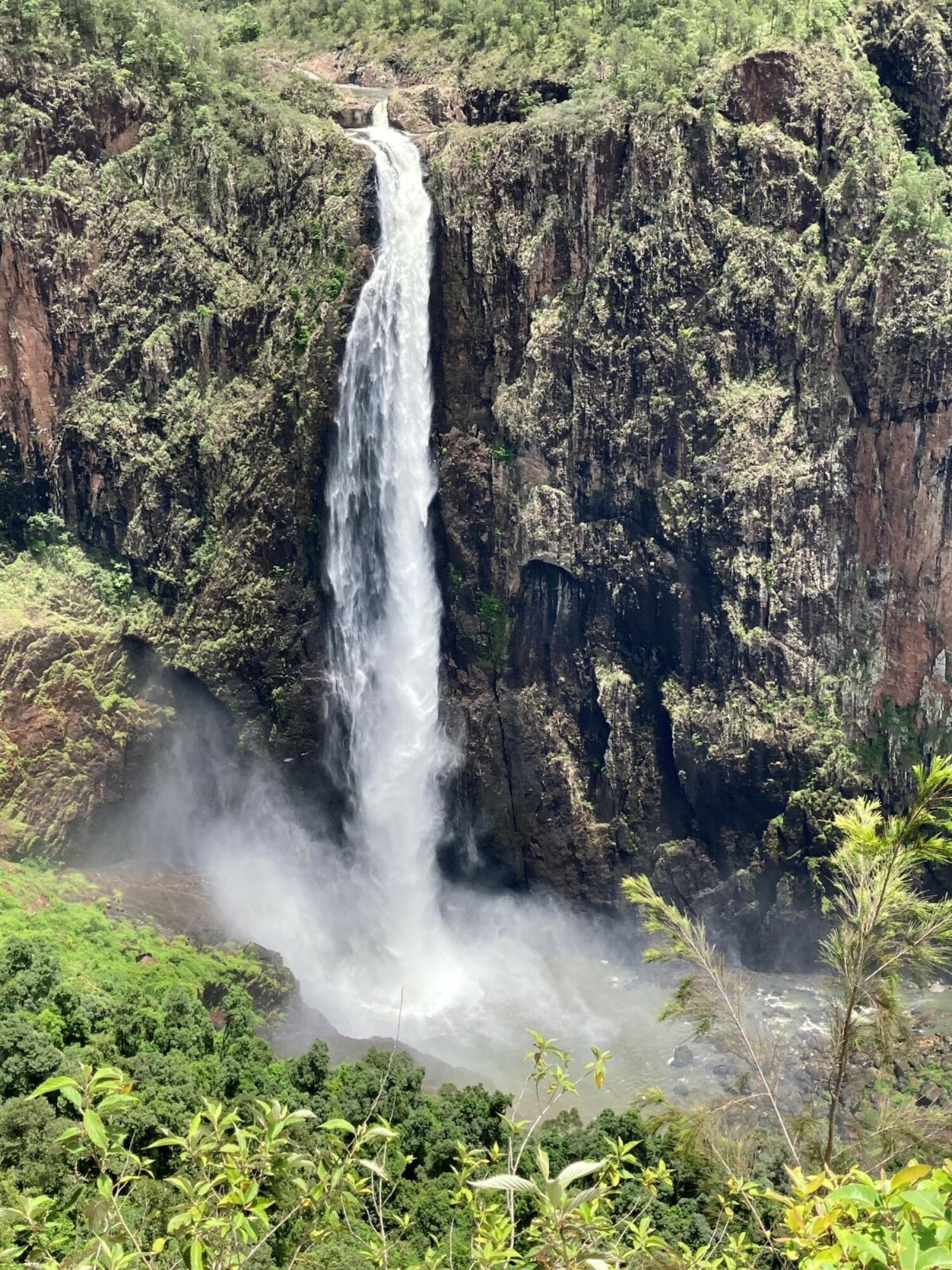
Wallaman Falls is the highest single drop waterfall in Australia, whose traditional owners are the Warrgamay People. Image: Wet Tropics Images
Prof. Gilbert, author of Dirt Is Good: the Advantage of Germs for your Child’s Developing Immune System, says humans have suffered a multi-generational loss of the gut microbes that appear to be important for our health over the past 80 years, since antibiotics have been widely used. And poor gut health is now linked to a variety of diseases and conditions including obesity, chronic inflammatory conditions, degenerative brain diseases, depression, cancer and endocrine disorders such as type 2 diabetes.
That doesn’t mean we should be out in the garden or the rainforest eating handfuls of dirt, but Gilbert believes healthy interactions with nature appear to be part of a preventative lifestyle, and possibly even of a well-rounded medicine kit.
Doctor Nicole Sleeman, a GP based in Cairns, is a member of Doctors for the Environment, a not-for-profit organisation that was founded to educate colleagues and the community about the links between natural ecosystems and human health.
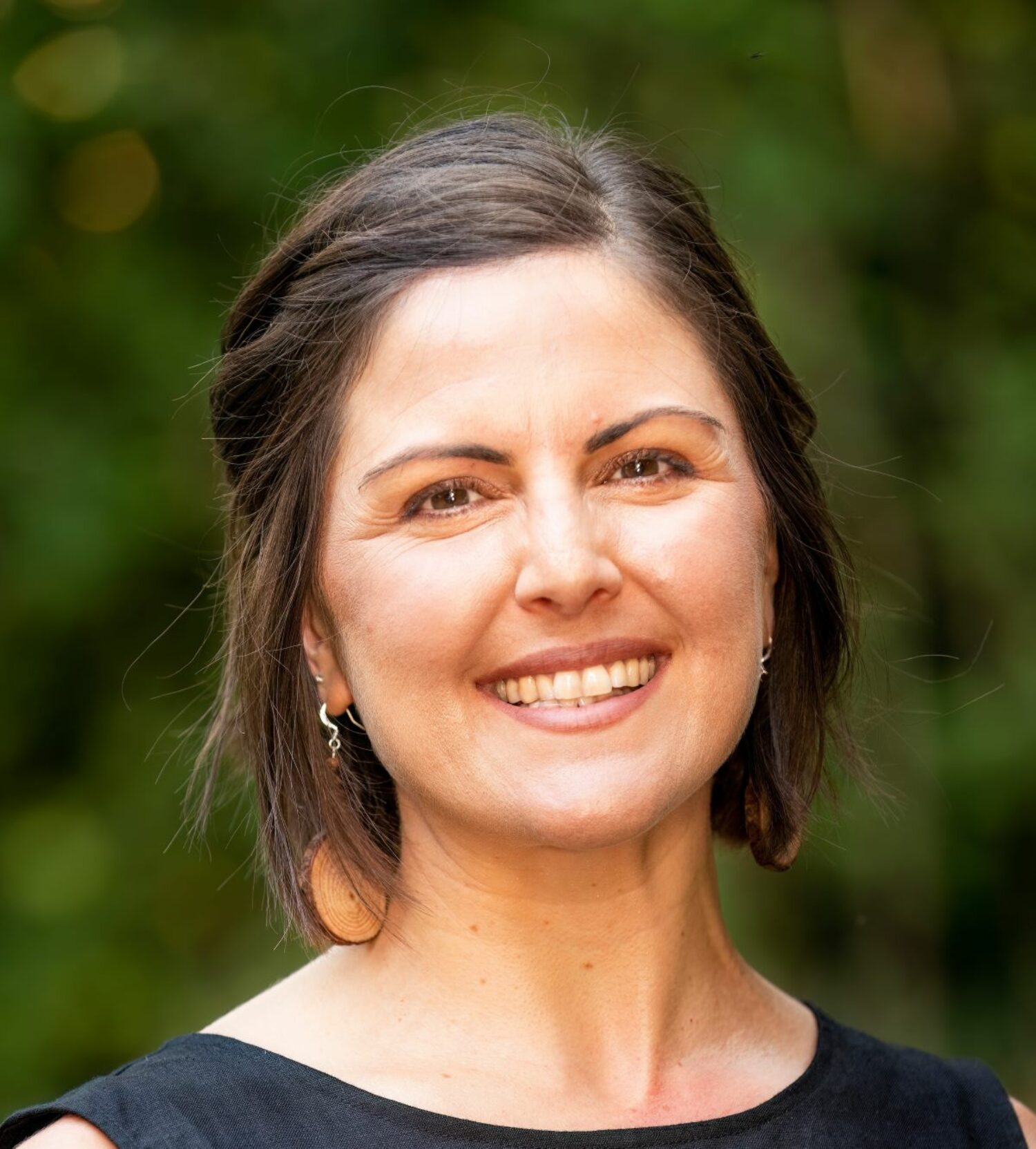
Doctor Nicole Sleeman is a member of Doctors for the Environment, a not-for-profit organisation that promotes the links between natural ecosystems and human health
“The reason I first came involved was because of my concerns about ocean plastic, and I learned climate change was such a threat to human health,” Sleeman says. “I came to understand the relationship between human health and our ecosystems and that gave me a great meaning and purpose.”
Last year Doctors for the Environment released a comprehensive report called Trees: The Forgotten Heroes for our Health, which detailed the benefits to human health of green space.
“Heat kills more Australians than all other natural hazards, and it’s negligent that councils aren’t doing more,” Dr Sleeman says. “We have finite resources on this beautiful Earth and we have to look after her.”
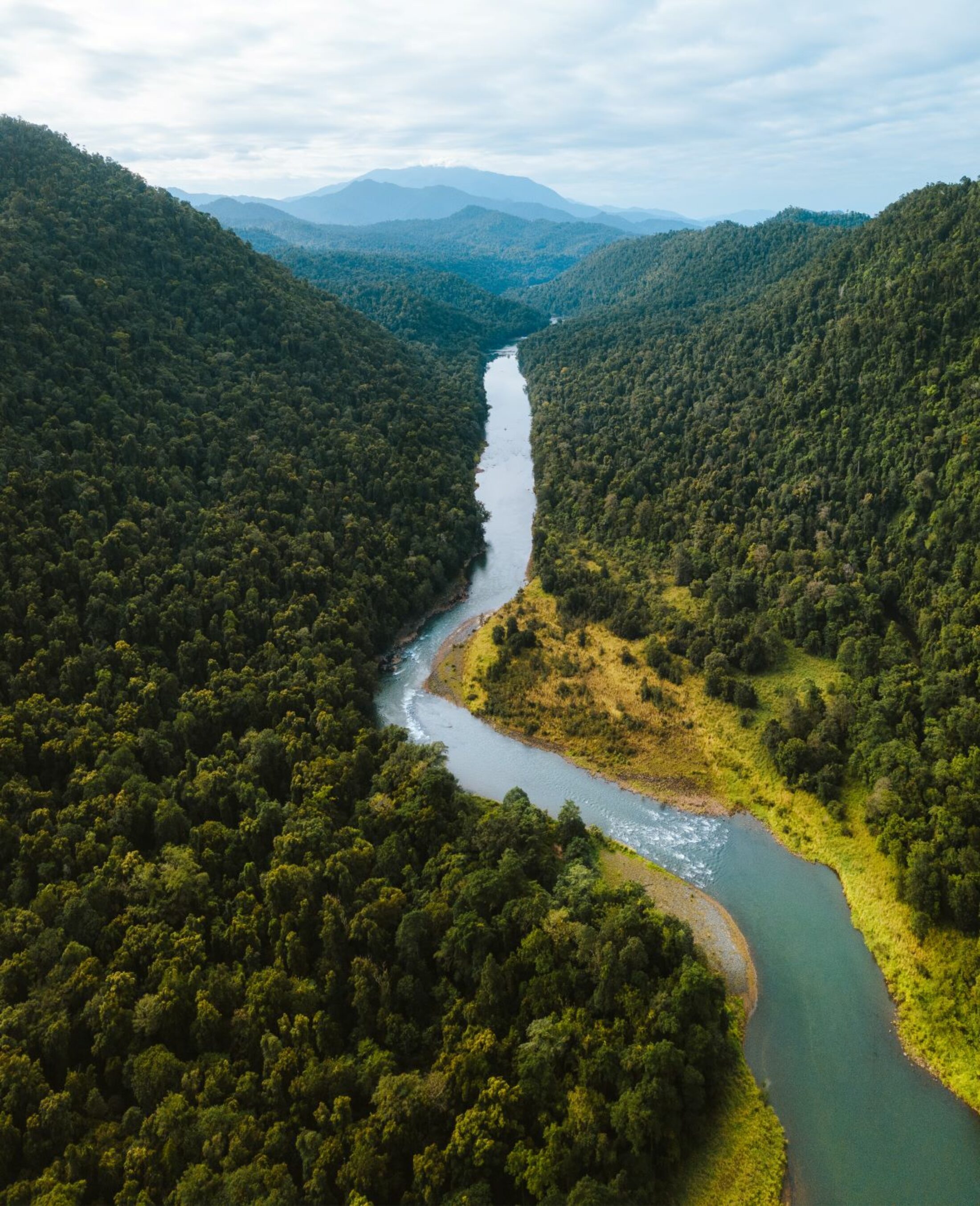
North Johnstone River is a part of the northern World Heritage Wet Tropics, north of Innisfail. Image: Tourism & Events Queensland
Andrew Solomon knows the science of the healing value of Country without having had to study it in a lab.
“I’m home when I go in the bush,” he says. “When I look at city life it seems all fake, man-made. Mother Nature, she heals me. I don’t like being in the house too long, I feel like I’m caged. When I’m outside I feel my connection to Mother Nature.
“When you have empathy and love in your heart for Country, she will let you know she loves you just as much. It’s like when you haven’t seen your family for a long time. We are one with the planet, we are made from her. Country shows you too that she loves you.”
He is planning to re-establish a men’s group to help focus his people on traditional values, and in particular to bring back his tribe’s initiation ceremonies, which he says “address the ego”.
“This society lets your ego prosper. You shouldn’t think about yourself, you should think about everyone, right down to the babies. There’s an energy around the earth, and we can pick up on it,” he says.
“It connects us to Country and makes us healthy.”
Andrew McKenna is a journalist with the Wet Tropics Management Authority in Cairns, Queensland, Australia
Support solutions in 2024
Positive News is helping more people than ever to get a balanced and uplifting view of the world. While doom and gloom dominates other news outlets, our solutions journalism exists to support your wellbeing and empower you to make a difference towards a better future.
But our reporting has a cost and, as an independent, not-for-profit media organisation, we rely on the financial backing of our readers. If you value what we do and can afford to, please get behind our team with a regular or one-off contribution.
Give once from just £1, or join 1,400+ others who contribute an average of £3 or more per month. You’ll be directly funding the production and sharing of our stories – helping our solutions journalism to benefit many more people.
Join our community today, and together, we’ll change the news for good.
